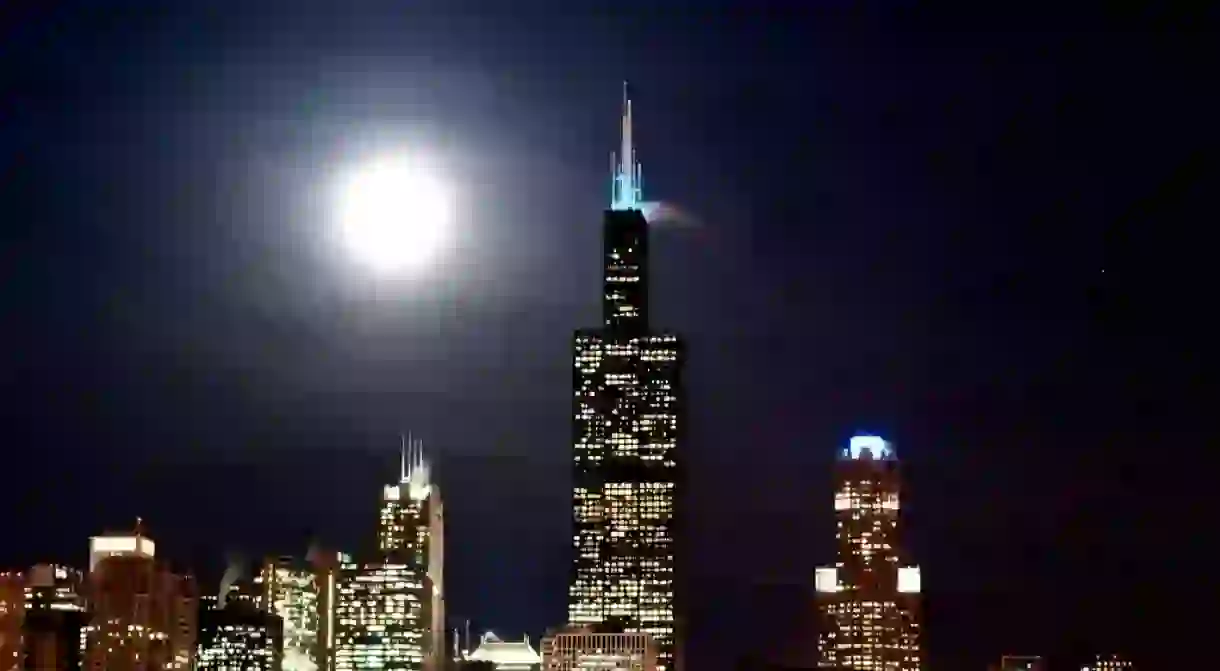7 Poems That Capture The Essence Of Chicago

Every city has a soul, unique to its people and buildings. Chicago is no different, and it has inspired many poems. Written by poetry heavyweights like Gwendolyn Brooks and Carl Sandburg, these poems only just begin to capture the essence of Chicago.
‘Chicago’ by Carl Sandburg
Sandburg expertly weaves a mantra for the city of Chicago. From Sandburg’s time to now there have been expectations about Chicago as a hard place, a place that is dirty and that will eat up anyone who cannot take it. While this poem acknowledges the roughness of the city, it also elevates its people as inspirational — people that bring about innovation through hard work and laughter.

‘Chicago and December’ by W. S. Di Piero
This poem captures the crispness of the air during a Chicago December, and how downtown dresses up for the holidays, from the wreaths around the necks of the Art Institute’s bronze lions to the Christmas lights that line Michigan Avenue. The juxtaposition of external holiday cheer and the coming of winter creates a moment of internal reflection.

‘Rome Wasn’t Built In A Day (Love Sosa)’ by Malcolm London
Chicago is a city unable to escape scandal; much of this history has been commercialized through tales of old-school gangsters and corrupt politicians. The city’s modern scandal focuses on gun violence, and Malcolm London does not shy away from this struggle in his poetry. He refuses to let Chicago’s homicides become jokes or spectacles, instead using his voice to remind us that not only is the problem real, but it is happening to people, and he won’t let you ignore it.
‘Declaration’ by Phillip B. Williams
‘Declaration‘ is a love poem to Chicago, and Williams hopes that this love is mutual. He does not ignore or whitewash the complexity or failings of this city. Everything from Lake Michigan to gentrification, from segregation to deep dish pizza… all of these things combine to make the city that Williams lives in. It is not a perfect city, but it is the one he lives in, and the one he loves.

‘Chicago’s Congo’ by Frank Marshall Davis
Davis writes of the tuneless song that Chicago creates, with gambling halls, the roar of the L, and the silence of the moon and skyscrapers. Reading this poem whips you around and throughout Chicago, and while it might help to have been to some of these landmarks, it is not necessary. As the poem says: ‘you get it or you don’t/It is a melody of everything and nothing.’
‘Of De Witt Williams on his way to Lincoln Cemetery’ by Gwendolyn Brooks
Anyone who has spent a significant part of their life in Chicago, or in any city or town, starts to associate specific places with their time there. These places — pool halls and dance halls, in this case — make up the Chicago that the subject of this poem lived in. For all of Chicago’s residents, these sorts of places are more ‘Chicago’ than any of the city’s great landmarks. These places are their lives, and so it is fitting that these places are the last De Witt Williams passes after he dies.
‘Bath’ by Stuart Dybek
Chicago is a large city, and like most large cities, this means that most people live in apartments. Almost everyone who has ever lived in an apartment has a story similar to this one, of thin walls bleeding in the voices and lives of their neighborhoods. In a city as diverse as Chicago, these voices are often a mix of accents, language, and stories.













